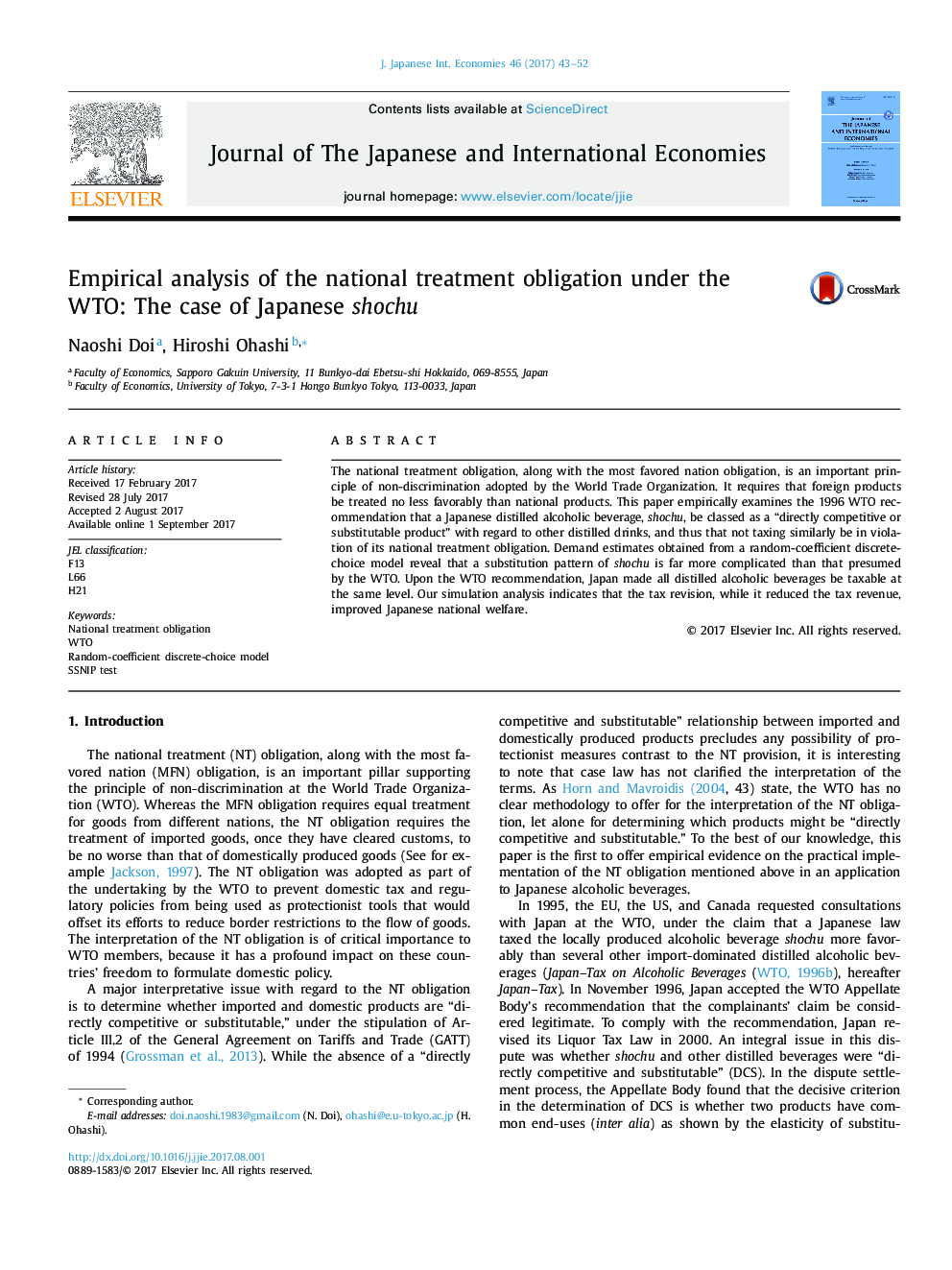| Article ID | Journal | Published Year | Pages | File Type |
|---|---|---|---|---|
| 5101226 | Journal of the Japanese and International Economies | 2017 | 10 Pages |
Abstract
The national treatment obligation, along with the most favored nation obligation, is an important principle of non-discrimination adopted by the World Trade Organization. It requires that foreign products be treated no less favorably than national products. This paper empirically examines the 1996 WTO recommendation that a Japanese distilled alcoholic beverage, shochu, be classed as a “directly competitive or substitutable product” with regard to other distilled drinks, and thus that not taxing similarly be in violation of its national treatment obligation. Demand estimates obtained from a random-coefficient discrete-choice model reveal that a substitution pattern of shochu is far more complicated than that presumed by the WTO. Upon the WTO recommendation, Japan made all distilled alcoholic beverages be taxable at the same level. Our simulation analysis indicates that the tax revision, while it reduced the tax revenue, improved Japanese national welfare.
Related Topics
Social Sciences and Humanities
Economics, Econometrics and Finance
Economics and Econometrics
Authors
Naoshi Doi, Hiroshi Ohashi,
